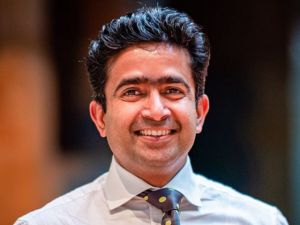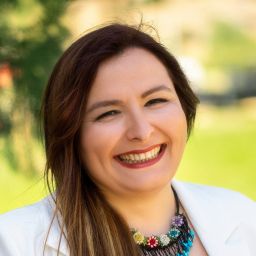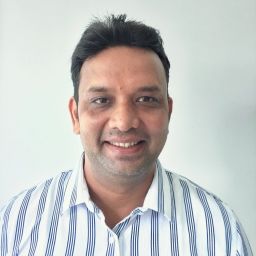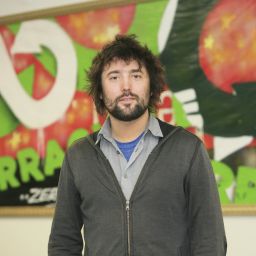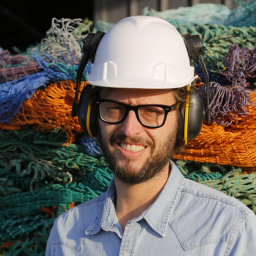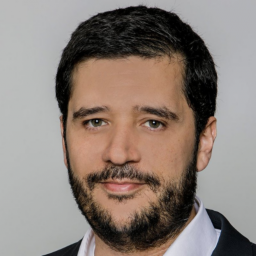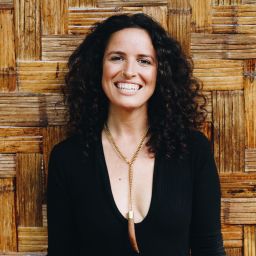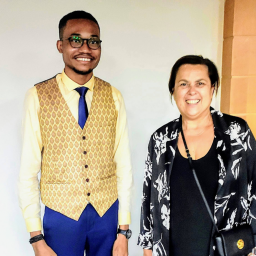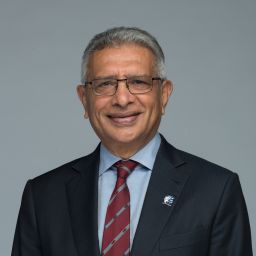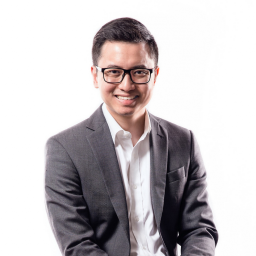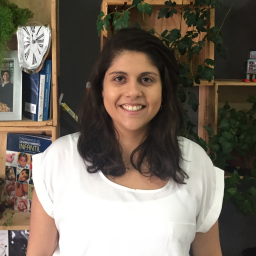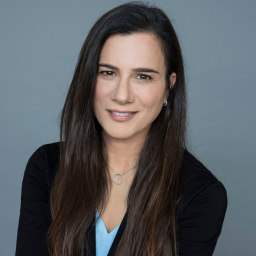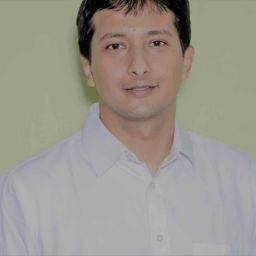Meaningful Business (MB:) Please tell us a bit about your background.
Catherine Von Burg (CVB): Growing up, I lived and attended school in both the UK and US, traveling extensively throughout Europe and South East Asia. There have been periods in my life that were defined by poverty and hunger, juxtaposed with great privilege and private school, in both urban and rural settings. These stark contrasts throughout my life caused me to become very aware of how access to critical resources and opportunities, like food and education, can profoundly impact a person’s life and sense of self, for better or for worse. Identity is grounded in nationality, race, educational level and socioeconomic status, which is at once superficial and definitive to who we are as people.
Despite constant change and significant hardship, I am grateful for the diverse spectrum of experiences and perspectives I was exposed to growing up. It fostered a deep commitment to people and their innate potential. And though I love literature, music and the performing arts, I ultimately became very interested in physiology, biomedical engineering and scientific research.
Taking an idea from conception, seeing it evolve through rigorous research and development with the goal of making an impact on people’s lives for the better, solving real-world problems through innovation and ultimately commercial viability, is very compelling.
MB: What Led you to found SimpliPhi Power?
CVB: I founded SimpliPhi Power a decade ago with a clear mission. We want to create universal access to safe, reliable, and affordable energy, empowering people, communities, and enterprises globally through innovation and disruption of the status quo across energy markets.
SimpliPhi is committed to the transformation of the power grid and creating equitable access to energy by leveraging distributed, customer-sited energy storage, harnessing renewable generation and driving the transition away from fossil fuels to mitigate GHG (greenhouse gas) emissions and climate change. In 2010, we chose to innovate energy storage solutions based on a safer and more robust battery chemistry, avoiding the cheaper but dominant lithium-cobalt supply chain that utilised hazardous and toxic cobalt.
Cobalt mining has documented forced and child labour, and dire consequences for people and the environment – from extraction of the toxic metal, to manufacturing, to customer safety, and recycling. Even today, as other companies continue to exploit lower cost lithium cobalt-based battery chemistries, we continue to develop new solutions that beat the competition on quality and safety, while growing globally and profitably.
MB: What is the problem you are trying to solve?
CVB: More than 900 million people worldwide are marginalised simply because they do not have access to electricity – “the grid” – stifling economic opportunity, education, health care and other vital resources. Millions more have intermittent access that is unreliable and costly. For those that do have access, far too much of it is generated from carbon-emitting fossil fuels that are accelerating the devastating effects of climate change. Distributed, customer-sited energy storage is critical to delivering sustainable and resilient electricity, and helping us transition away from fossil fuels to a clean energy economy. This would bring power to many communities for the first time, and enable electrified economies to avoid broad-scale power outages, protecting people and the economy from losses all while saving money, creating new jobs, and building more resilient energy networks.
That is in part why SimpliPhi Power joined the United Nation’s Global Compact and committed to the UN Sustainable Development Goals (SDGs). We see the UN’s mission, and the SDGs, as foundational to our company’s vision for a more sustainable and equitable future.
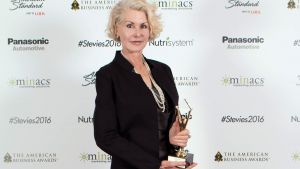 Catherine Von Burg, CEO & President, SimpliPhi Power
Catherine Von Burg, CEO & President, SimpliPhi Power
MB: What is your biggest challenge right now?
CVB: The slow pace of change, entrenched incumbents and the regulatory landscape that still supports $5.2 Trillion dollars in global fossil fuel subsidies (IMF). So much of our global economy is predicated on the extraction, refining, manufacturing and infrastructure that supports fossil fuels. Disrupting business as usual and the status quo is difficult and slow, particularly when subsidies, favourable tax loopholes and regulations serve to artificially depress the true cost of energy and prevent consumers from making informed decisions about the energy they purchase.
Consumers may pay lower prices up-front at the gas pump or wall socket, but they pay dearly on the back end through their tax dollars. Trillions in subsidies go to oil companies, superfunds that clean up oil spills, and to health insurance companies that treat diseases caused by, or exacerbated, by fossil fuel emissions, polluting the air we breathe and the water we drink.
Distributed renewable energy generation, combined with energy storage, creates resilient communities, eliminates the devastating impact of GHG emissions, and safeguards against pervasive large scale power outages and escalating climate change that further destroy economic stability. Today, it is estimated that there are 21.5 million people who leave their homes and communities every year due to catastrophic climate events. The number is increasing every year, in many cases with displacement being permanent. The economic losses due to the destruction climate change incurs, combined with the cost of clean-up and rebuilding where possible, further amplify the true cost of fossil fuels and GHG emissions. These mounting costs underscore how important a clean energy economy is and how distributed renewable energy generation plus storage is more cost effective – for the economy, for the environment, and for people. Unfortunately, these costs are not captured in traditional economic models used to analyse different costs associated with fossil fuel versus renewable energy sources.
We must overcome this regulatory and legislative inertia, bring an end to subsidies and tax loopholes that continue to support oil, gas and coal, particularly when these industries have been losing money year over year (S&P 500). If the true costs and associated losses incurred by the fossil fuel industry were not obfuscated by subsidies and other government policies, and instead captured in the price points consumers pay, demand for low-cost clean energy would itself drive the transition to renewable generation.
MB: What is your vision for the future of your business?
CVB: Since founding, we have been a mission-based technology company, combining profit with purpose. We have grown and achieved profitability based on the efficacy of our technology, solving real-world problems around access to energy across markets globally. We will continue to expand as a leader, innovating new energy storage solutions and business models that meet increasing market demand, supporting our commitment to creating universal access to energy, that is both equitable and sustainable. Integral to that growth and vision, we launched a global campaign, The IDEA: 1% to Deliver Energy Access. Annually, we commit 1% of our revenue to high impact projects that provide reliable and renewable energy to communities, fostering sustainable economic development and energy security.
Our continued success as a company is a catalyst for meaningful change, and the IDEA is a platform that calls on other mission-based companies to donate money and/or equipment to combine profit and purpose for high impact renewable energy projects. We have built a global network of partners and are looking for others to join us in this critical endeavour.
MB: What is your advice to other leaders who want to combine profit and purpose?
CVB: For SimpliPhi, we took the position early on to adopt the principle of an integrated bottom line, placing equal value on people, planet, and profit, as fundamental to our overall financial success. In an interdependent global economy, these three principles are critical, particularly in the energy market where climate change threatens to undermine whole economies with mounting ecological destruction, interruption of critical infrastructure, human displacement, and deleterious health impacts.
________
Quickfire Questions
MB – What’s the best piece of advice you ever received?
CVB – Listen to your heart and your mind – it is a powerful combination often underestimated in the pursuit of rational decision making. Where they intersect, resides a powerful moral compass.
MB – Who inspires you?
CVB – All the unsung heroes across the planet. Women, children, and men who persevere in the face of great hardship every day, without the promise of accolades, recognition, or relief. Their fortitude is inspiring and humbling.
MB – How do you define success?
CVB – Being able to engage in something that gives you a sense of purpose and joy – every day.
MB – What is something you wish you were better at?
CVB – Breathing in the moment.
MB – What is the one book everyone should read?
CVB – “Finer Future: Creating an Economy in Service to Life” by Hunter Lovins. She is an extraordinary woman, activist, author, business and policy advisor, professor, and speaker.
MB – What do you do to relax?
CVB – Read – a lot.
________
Discover the other MB100 leaders recognised for their work combining profit and purpose to help achieve the United Nations Sustainable Development Goals in 2020, here.


